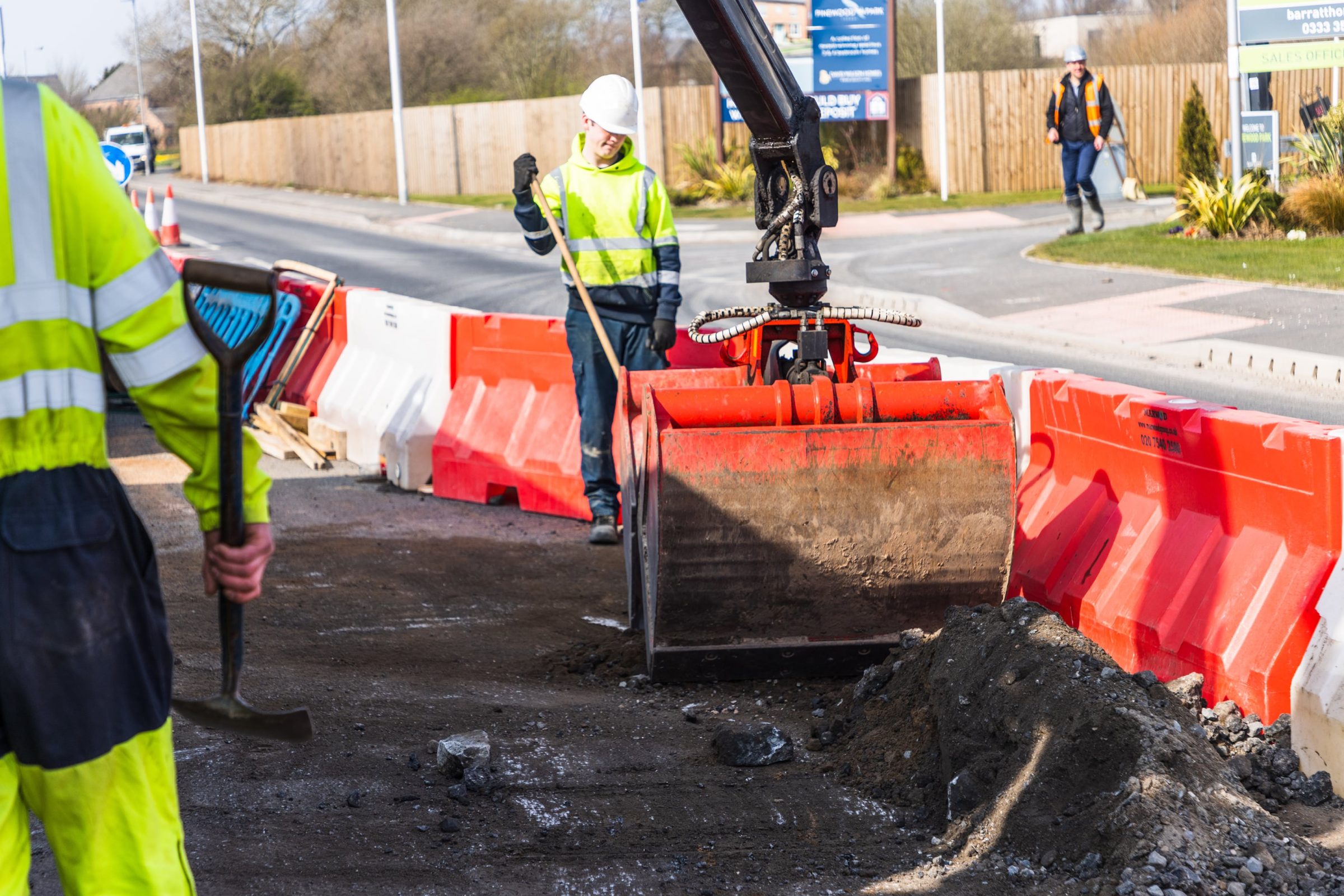
Top three reasons to minimise road surface damage during construction work
Whether you’re working commercial or residential areas, road surface damage is an inevitable aspect of construction projects. Although common, it can cause a variety of problems that are time-consuming and costly to fix – especially when legal action becomes involved. Keep reading for the top reasons for construction companies to make sure that they are exercising due diligence in minimising damage to roads and pavements during works.
Reasons to prevent road surface damage
There are roughly 250,000 miles of road networks in the UK alone, serving as a vital means of transportation for the efficient distribution of goods and services, commutes and support for the UK’s economic and social security. Estimated at a value of £750 billion, causing damage to this integral part of the UK’s socio-economic development affects more than just your business – significant damage can impact hundreds of people at a time.
Road surface damage during construction can include:
- Dust coming off a demolition site into a public area
- Mud or debris on the road from vehicles leaving a demolition or construction site
- Lorries mounting pavements
- Resting stabiliser jacks on the pavement
- Hydraulic feet of the grabber lorries
1: Financial costs of repairs
Councils are permitted to repair road surface damage caused by any construction works and, in some circumstances, do not need to alert the company before charging the repairs back to them. Those liable for the charges can include the landowner, persons carrying out the works or persons on whose behalf the works were carried out, according to Section 1333, amended by Section 6 of the London Local Authorities and Transport Act 2013. This act applies to all roads within England and Wales.
This means that your company may not even be aware that a reparations bill is coming until after the work has been done, taking away your agency for ensuring a cost-effective or efficient repair. It is more beneficial for construction companies to oversee the repairs themselves for cash flow purposes, so involving the council is often a last resort for disgruntled residents or commercial properties.
Due diligence must be paid when carrying out construction works on land adjacent to a publicly maintained pavement or road. Without proper road protection in place, charges incurred could easily spiral due to the lack of control your company would have over the implementation of the repairs.
2: Damage to reputation
When carrying out work it is important to consider the disturbance it may cause to vehicle traffic and foot traffic. Whether it be demolition, excavations or construction, new developments can have an impact on traffic flow and road safety, as well as being a major inconvenience for pedestrians – especially regular users of the network system.
This can lead to disgruntled residents and a knock to your reputation at best, and legal action being taken against your business at worst. In either instance, construction businesses can expect a loss of income – either through losing clients or through paying expensive legal fees.
3: Dirt, dust and debris
Dirt and debris is certainly a less invasive form of damage than larger scale potholes or cracks in the road surface. However, construction creates a high volume of waste and this needs to be factored into plans for road surface protection. Correct waste disposal is the responsibility of the construction site manager and includes dust, dirt and debris left on pavements and roads.
Again, the council will seek reimbursement for any repairs needed to get roads and pavements to the same condition they were in before the beginning of construction works. This includes the removal of any remnants of the work, from sand and soil to more robust debris, from roads and pavements. To avoid incurring a charge from the council and for ease of clearing the debris, construction companies can implement simple road surface damage prevention solutions.
How to prevent road damage
While road surface damage isn’t uncommon within the construction sector, certain steps can be taken to prevent severe damage and reduce the risk of the above issues coming to light.
Protect road and pavement surfaces from heavy machinery with suitable ground protection using our Stokbord® Road Shield. With enhanced tensile strength and impressively long service life, Stokbord® Road Shield outperforms traditional plywood spoil boards on all accounts.
The boards are splinter-proof, waterproof and durable, meaning they rarely need to be replaced. Capable of dealing with the weight of heavy machinery and skips, Stokbord® Road Shield is an ideal buffer between the road surface and any damage caused by the works. The multifunctional road surface damage prevention solution helps you keep additional costs down without disturbing the efficiency of your workers. Designed with ease of use in mind, Stokbord® Road Shield features cleverly designed hand holes and round corners for seamless implementation.
Want to see it in action? Find out how our client used Stokbord® Road Shield to prevent road surface damage
Carrying out construction works near or on pavements and roads is unavoidable, but often leads to great disturbances to traffic and pedestrians’ footpaths. In these cases, unclear road diversion routes or construction signage can endanger the safety of workers, pedestrians and road traffic.
For further information or advice on the best products for your project, please get in touch with our expert team
